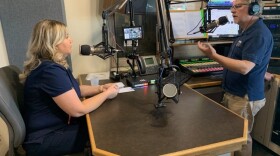By Howard Fischer
Capitol Media Services
PHOENIX -- Arizona's top prosecutor is providing advice to state and local agencies on how to meet their legal obligations under the Open Meeting Law in the face of COVID-19.
The answer, according to Attorney General Mark Brnovich, is technology.
In an informal legal opinion issued Friday, Brnovich said the state's Open Meeting Law actually allows public bodies to hold remote meetings.
He said that could mean having board or council members at remote locations, connected to each other electronically. Or Brnovich said board members might decide to meet at a central location but not allow public attendance to minimize the risk of spreading disease.
But the key, he said, is public notice -- and lots of it far in advance of anymeeting.
The whole purpose of that, Brnovich said, is to tell people how they can attend -- or at least view -- public meetings by informing them of when and where to go as well as how to get information about what matters are going to be up for discussion.
That, he said, starts with a statement on a public agency's website informing people that there will be a meeting held remotely through technological means.
That, in turn, means providing a website location for a video conference and directions on how to access the meeting. And if the meeting will be telephonic, then people need a number to call in to be able to hear.
Conducting a meeting remotely, Brnovich said, requires special considerations that wouldn't be important for those conducted in the same room with members of the public present.
For example, he said, any members of the public body should identify themselves each time they begin speaking. Ditto, he said, of staffers, other presenters and members of the public.
If there are to be presentations, copies of those should be available on the website.
And for clarity, those conducting the meeting should ask all participants to mute their microphones or phones when they are not speaking.
None of this, Brnovich said, alters the fact that nothing in state law actually requires public bodies to allow members of the audience to speak as long as they are allowed to witness what business takes place.
-30-
On Twitter: @azcapmedia







